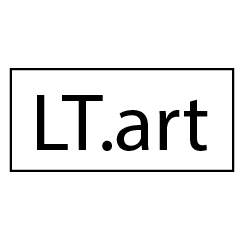repeated words lose their meaning
Laivi, Ana Likar, Liudmila, Teja Miholič
Improper Walls
Reindorfagasse 42, 1150
18.9 - 6.11.2024
Group exhibition
There is hardly a concept as unifying – or divisive – as language. Words are powerful tools, ones that build nations and crumble them to the ground, that shape our thoughts, stories and actions, that can stoke the fire of a revolutionary idea or fertilise the ground for violence and prejudice. Words give shape to our dreams and nightmares, our pasts and futures, our realities. But once meaning is imbued, can it be taken away? Can the politics of language change through loss of meaning, and what happens in this new (post)geography?
The group exhibition repeated words lose their meaning explores these questions through works by artists from Lithuania, Estonia, and Slovenia. The geographical position as well as the post-socialist past of these Eastern European peripheries still carry certain connotations, approximating two remote regions – the Baltics and the Balkans. In an attempt to deconstruct certain meanings, particularly those associated with identity constructs and feminist and anti-capitalist perspectives, we suggest repeating the same words over and over again until meaning is lost. How can we look at our histories and our present from a perspective that doesn't presume further marginalisation? Is it possible to find new models of language in the digital space? And are they unifying or even more dividing? The exhibition explores both the histories and futures within the context of language, mapping its already transpired traces and the possibilities it holds in the post digital world. Language is a power structure, but one that can be overcome.
The artist duo Liudmila connects different media in their works, from music and video to sculptures and performances. Language permeates their works in lyrics and wordplays, while their often associative works echo broad thematic affinities, emotional expressions, and collective memory. Their work centres on an outdated cigarette display, emphasising the frailty of utility and collective amnesia. Featuring a vintage cigarette display turned lightbox, the installation highlights objects that have lost their original purpose due to legal or ideological changes, like advertisements of nicotine products.
The theme of consumer culture is further explored in Teja Miholič’s works, made between the mediums of visual art and film. The exhibited project is a video extension of artist’s multi-year project Fukaj lokalne kurbice (Eng. Fuck Local Whores), in which she collects spam advertisements with awkward sentence formulations, unusual and mostly kitschy aesthetics, and purpose unknown to most internet users. For the past couple of years, she has been amassing a wide and varied collection of unwanted ads. By collecting and juxtaposing these fascinating fragments of the internet, at the same time alluring and repulsive, the artist explores how such ads are made, what their intention is, and who they are intended for – but also whether their form and message are a kind of collective language in themselves.
The keywords of Laivi's practice are desire and longing, addiction and glorification, production and offer, preservation, destruction, and the price of value. In her work Liquefying the Hard Core Identity, she’s placing focus on mirrors, objects that alter, distort and manipulate perceptions of reality. Reflective surfaces combined with an array of at times illegible text explore the concept of identity and the tension between what is real and what is perceived. The mirror is a deceptive extension of the physical world. Confronting the mirrored self opens a gateway into an “anti-world” – a sacred realm where illusions and realities coexist. This space is both captivating and unsettling, not offering clear answers, but rather a space for contemplation.
Ana Likar chooses to focus both on what is said and what remains unsaid. In her video work She Made Storms, the artist links three events that occurred in Slovenia: the witch trials in Ribnica and the trial of Marina Češarek in 1701; the brief period in 1987 when the Mikl House was renamed the Marina Češarek Gallery for the duration of Jošt Rotar’s exhibition; and the devastating flood that struck these spaces in the summer of 2023. Seemingly unconnected histories are linked by natural disasters and the processes of preservation and archiving. The text that accompanies the video is based on historical documents and conversations with experts, interpreted in the local dialect to include the linguistic slips that occurred in the process. This transforms the rigid structure of interrogations, museums, and archives into repeated failures and repetitions. She leads us along the paths of the search for St John’s wort, which was used to extort the truth from the accused “witches” but also as a medicine for wounds and sadness.
Curated by: Justina Špeirokaitė and Hana Čeferin
In collaboration with Improper Walls
Supported by Lithuanian Council for Culture, MA7, BMKÖS, Lithuanian Embassy in Vienna

